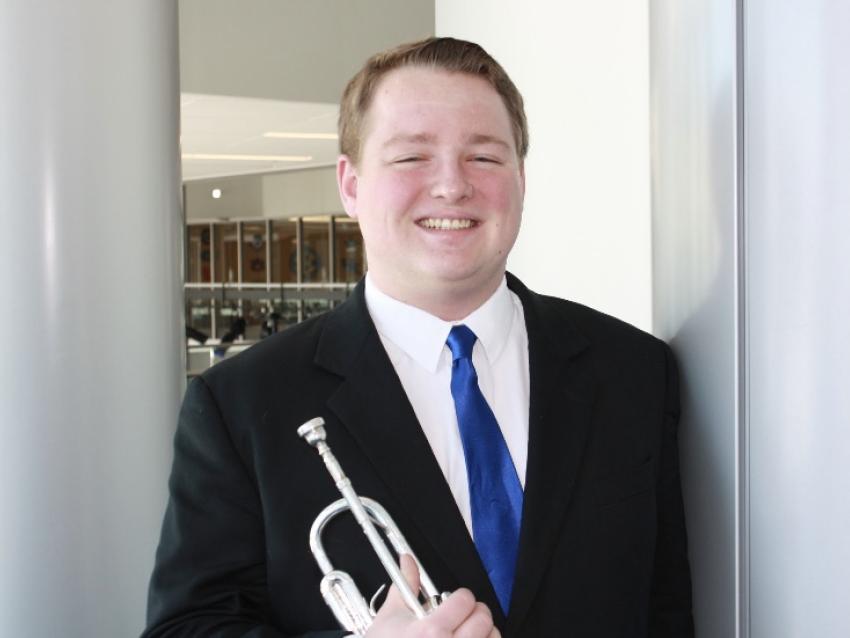
Summer Research Fellow Spotlight Andrew Reynolds
"The Baroque Trumpet is the valveless ancestor of the modern valved trumpet. While it was the primary trumpet used from 1400–1850, its most prominent repertoire comes from the Baroque musical era (1600–1750), which is why it is often referred to as the “Baroque” trumpet. I have literally had a “hands on” role in this project, taking it upon ourselves to build our very own instruments. In the summer of 2019, I attended the Natural Trumpet Making Workshop in Bloomington, Indiana and now use these handmade instruments in the UK Baroque Trumpet Ensemble. Our Baroque Trumpet Ensemble is one of the very few such groups in the world. Last year, we were invited by Mountainside Baroque in Cumberland, Maryland, to be featured guest artists-in-residence on their Fall concert. In summer 2020, we have been invited to perform at the Kolbuszowa Trumpet Festival in Poland. There is a great need for quality recordings of the Baroque valveless trumpet, as very little of this repertoire has been recorded. Recordings of Baroque trumpet music played on period instruments in a historically informed manner are rather scarce. Our scholarly contribution is to recreate the sound of the Baroque trumpet ensemble using primary sources, period instruments, and historically informed techniques. We would like UK to become a leader in this emerging field of historical performance."
Q: How did you first get interested in undergraduate research at UK?
A: "I saw an opportunity to collaborate with Dr. Dovel and our trumpet studio to record and produce some music that has never been recorded before."
Q: How long have you been engaged in undergraduate research?
A: "This is my first summer collaborating with UK undergraduate research."
Q: Describe what a typical day of remote summer research activity looks like for you. How does this differ from your pre-COVID research activity?
A: "The research portion is about the same. I researched music from similar time periods to get accurate style. The difference is how we execute this research. Instead of being able to meet as a group, we have to record our parts separately with a metronome and then crop and mix them together."
Q: What has been the most exciting aspect of your research so far?
A: "I enjoyed learning about some of the history behind music."
Q: What advice would you give to other UK students thinking about doing research?
A: "Stay organized, take diligent notes, and lastly remember to enjoy what you are researching."
The UK Office of Undergraduate Research's Summer Research & Creativity Fellowship program provides undergraduates with the opportunity to study in a wide variety of disciplines while doing intensive and self-directed research under the supervision of a faculty mentor.